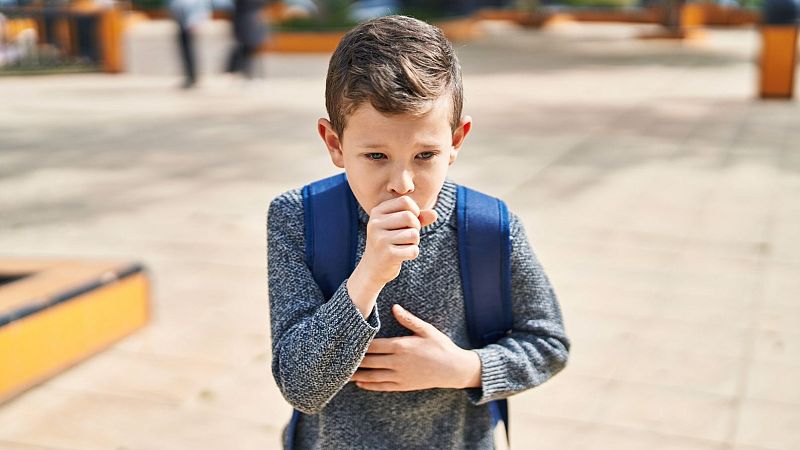Why a whooping cough outbreak hit one of Italy’s most vaccinated regions

Last winter, Tuscany was gripped with a whooping cough outbreak that sickened hundreds of children and hit the region hard despite having one of the highest vaccination rates in Italy.
After a few quiet years, child hospitalisations for pertussis, also known as whooping cough, surged ninefold in 2024 in Tuscany, the central Italian region that is home to cities like Florence and Pisa.
Nearly all two-year-olds and three-quarters of 16-year-olds in Tuscany are fully immunised against the highly contagious respiratory disease.
That prompted researchers from the European Centre for Disease Prevention and Control (ECDC) to launch an investigation. In a newly released study, they say that although most young people who got sick had been vaccinated, delays in getting the jabs had caused their immunity to wane, allowing the bacteria that causes pertussis to take root.
Italian health authorities recommend that children get four doses of the pertussis vaccine, at three months, five months, 11 months, and six years of age. Boosters are recommended between ages 12 and 18 and every 10 years in adulthood.
However, delays averaged more than a month for infants and more than a year for adolescents who were later hospitalised, according to the study published in Eurosurveillance, the ECDC’s medical journal.
“Even in children and adolescents formally considered up to date with their immunisations, earlier administration could have prevented hospitalisation,” the study authors said.
Italy is not the only country seeing a resurgence of whooping cough. Between January and March 2024, there were more than 32,000 cases reported across the European Union, Iceland, Liechtenstein, and Norway.
Large outbreaks are expected every three to five years, even in areas with high vaccination coverage, according to the ECDC.
Whooping cough is most dangerous for babies under one year old, but anyone can fall seriously ill. Infected people will initially have cold-like symptoms, and after about a week they may develop a persistent cough that makes it hard to breathe.
In Tuscany, an average of 28 children and adolescents were hospitalised for pertussis every year between 2016 and 2019, a level that surged to 259 in 2024. More than half of these cases were among children ages 10 to 16, with babies making up just seven per cent of cases.
The outbreak among older children and teenagers caught public health experts’ attention, given that most hospitalisations are typically among infants. Countries such as Denmark, Spain, and France also reported an unusually high number of cases among adolescents around this time.
For the study, researchers tracked the interval between Tuscan children’s eligibility for vaccination and when they were actually immunised. They could then compare this delay to the onset of disease for all pertussis-related hospitalisations between 2016 and 2024.
Most adolescent patients had gotten their early childhood vaccinations, meaning their infections were probably tied to waning immunity rather than parents refusing to get their kids booster jabs, the researchers said.
They said the findings indicate parents should not only get their children vaccinated against whooping cough – they should do so at the “earliest eligible opportunity”.
They also suggested that Italy’s recommended window for adolescent booster jabs – anytime between 12 and 18 years of age – may be too wide.
“We consider this a missed opportunity for protection,” the researchers said.
Meanwhile, 20 of the hospitalised babies were too young to be immunised, and none of their mothers had been vaccinated while pregnant.
The ECDC recommended that Italy launch public awareness campaigns to combat vaccine hesitancy and vaccine fatigue, and issue reminders about upcoming vaccinations for parents and doctors alike.
Today

